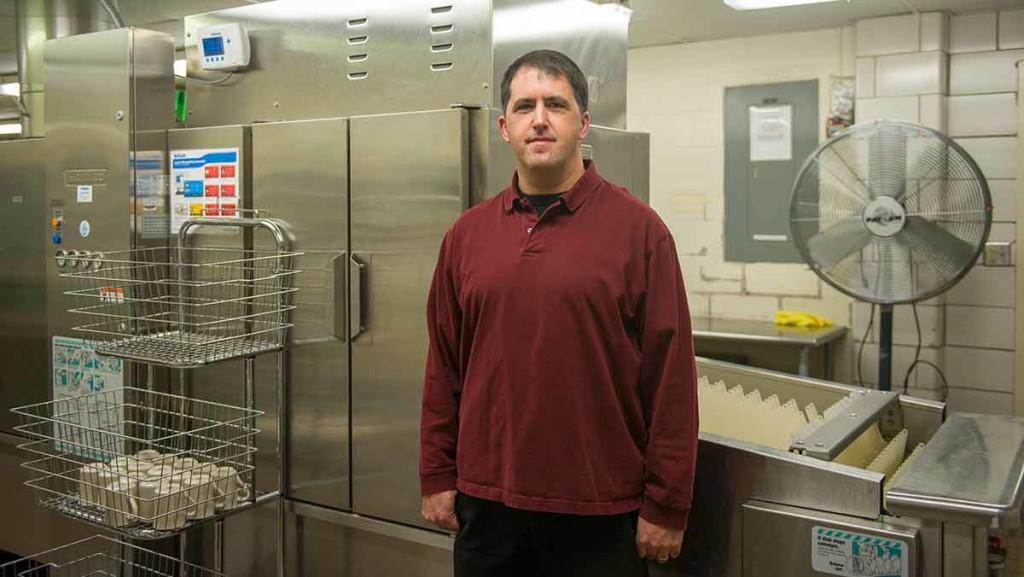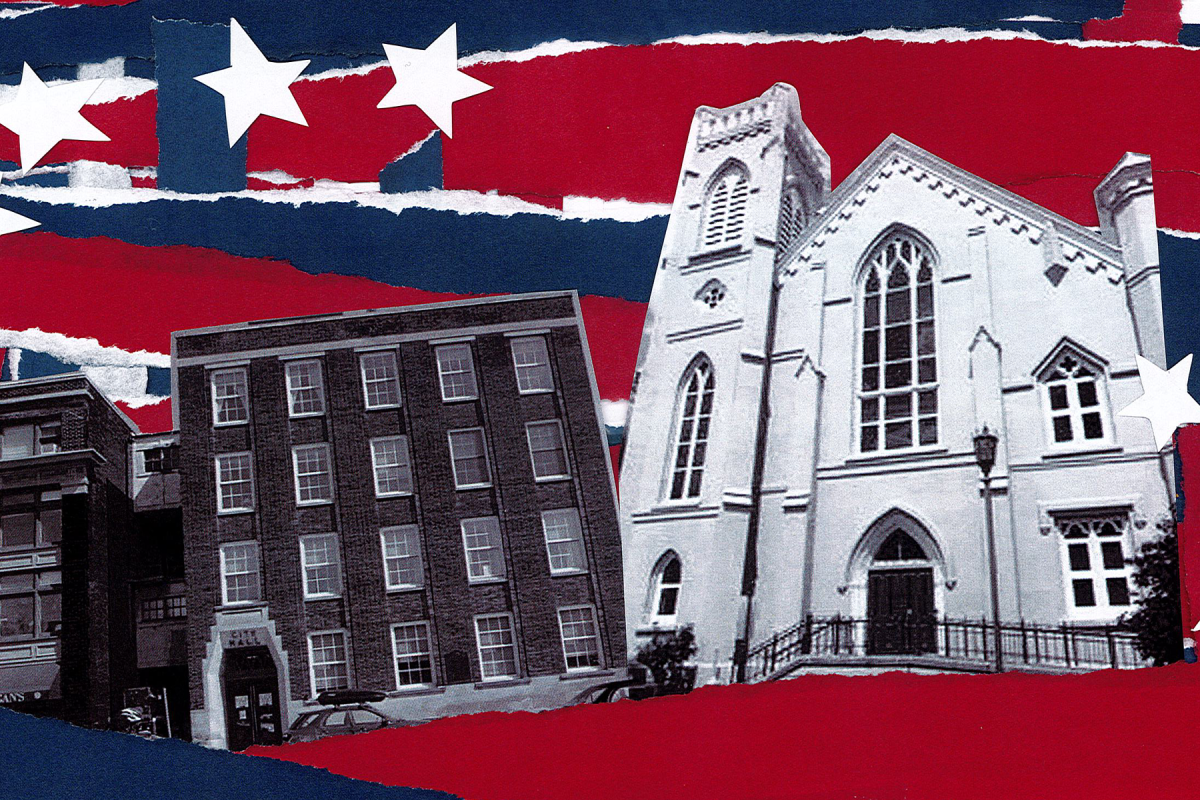As Ithaca College students slide their plates, forks and mugs through the dish return in Campus Center Dining Hall, an assembly line is in motion behind the window. It can’t be seen from the outside, but the dishwashing staff is constantly spraying, stacking and moving. And these workers are doing more than just cleaning food off dishes: They are dispelling stereotypes.
The dish room staff is made up of employees of Challenge Workforce Solutions, a local organization that places community members from the Tompkins County area with disabilities or barriers to traditional employment into local companies — one of which is Sodexo, the food service provider to the college’s dining halls. Larry Workman, general manager of contract staffing for Challenge Workforce Solutions, said the program allows workers from a variety of circumstances with physical or intellectual disabilities and language or work–experience barriers to have “meaningful employment.”
Challenge has been a major partner with Sodexo and the college, a top community employer since 1986, said Jeff Scott, area general manager of Sodexo. He said Sodexo contracts to Challenge, which trains, supervises and pays the workers.
“It has been a fabulous partnership for us,” Scott said. “It makes a great assistance into the community and … provides really reliable, consistent, hardworking staff that want to be here.”
Challenge employs about 70 staffers at the college, and over Workman’s 13 years overseeing the program, he has helped it expand to both Cornell University and Wegman’s, with approximately 130 total staff members as of 2016.
The structure of work varies from how much support and assistance each employee needs, said Emily Parker, director of development at Challenge. In the dish room, there are two supervisors for each shift who oversee and help troubleshoot problems workers may have with a given task. There are also “employment specialists” who, Workman said, act as counselors and help deal with personal problems that can occur both inside and outside of the workplace.
Workman said the program combines both professional skills in the workplace and social skills, which are equally as important. He said for many of the employees, their dish room shift offers some of the only time for social interaction in their day.
Dish room worker Annie Ellsworth works the fast-paced breakfast shift, which can see anywhere from 500–600 plates coming through the window on any given day, Workman said. At 36 years old, Ellsworth has worked in Campus Center Dining Hall for seven years, Monday through Friday. She said her favorite part of her job is “bussing” — moving the plates from the washing machine to different areas of the dining hall — because she gets to move around.
Ellsworth told her co-workers while spraying down the dishwashing machine during her morning shift Feb. 22 how excited she was to have participated in snowshoeing at the winter Special Olympics the past weekend and about the Bronze Medal she won in 2010 for the standing long jump. The water from the machine splashed her as another worker continued to spray dishes, but Ellsworth didn’t seem to mind. She laughed and called it a “hot shower.”
On the other side of the dish room, a ceramic plate fell through an employee’s hand as he stacked them coming off the machine, shattering on the ground. It was his first week on the job. Nobody yelled or scolded him — instead, a fellow employee grabbed a broom and helped him sweep up the shards.
The supportive atmosphere makes the dish room a home for many of the workers, Workman said.
“We don’t call it a team. We just call it a family here,” Workman said. “Our group is so tight. Everybody looks out for everybody.”
At the noon-hour lunch shift, the Challenge staff members can be found eating together in the dining room. Workman calls this “family lunch time.” At some meals, Workman joins them. Usually, he eats dinner at both Terrace Dining Hall and Campus Center Dining Hall in order to spend time with everyone.
For Workman, that support doesn’t stop when he heads home at the end of a 12-hour day. He often goes to local diners with longtime workers.
Mickey, an employee who has been working in the dish room at Campus Center Dining Hall for 11 years, said he loves these outings with Workman. Before working in the dish room, Mickey struggled with alcoholism and homelessness. Now he has three community jobs and tells his story every year at his brother’s nonprofit benefit in Chicago that helps the homeless.
Mickey keeps his 11– and 12–year coins — tokens that represent the amount of time he has remained sober — in his pocket. He is proud of his progress and keeps the reminder with him as he works each day.
“I like working here,” Mickey said. “I’ve got a good boss. He’s the best.”
Workman also knows the power of the Challenge Workforce Solutions program. He started at the college dining halls in 2003 as a member of the program himself.
Workman was severely injured at a previous job, keeping him from working in the same capacity. He took the new job in the dining hall on a referral to Challenge Workforce Solutions after realizing he had few options left for him. Workman initially just intended to build his resume with the position, admitting that at first, he held certain stereotyped beliefs about employees with disabilities.
“I came in with the whole impression of ‘I don’t want to work with folks with disabilities either. I’m not comfortable,’ and that was me,” Workman said. “Eight months later, I was offered the manager’s position. Now it’s been 13 years.”








